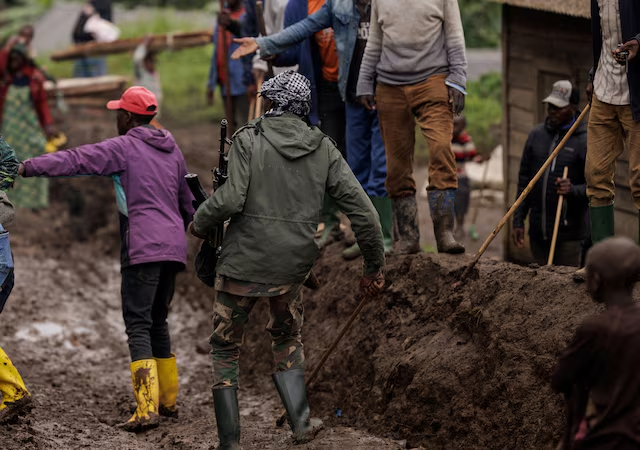The United Nations has accused armed groups and state forces in eastern Congo of committing atrocities that may amount to Congo war crimes. The U.N. Human Rights Office released a report on Friday detailing serious violations of international humanitarian law since fighting erupted last year in North and South Kivu.
According to the Fact-Finding Mission, Rwanda-backed M23 rebels, Congolese armed forces, and other groups carried out widespread abuses. The report said the crimes included summary executions, torture, enforced disappearances, gang rape, and the recruitment of child soldiers.
U.N. High Commissioner for Human Rights Volker Türk described the findings as horrific. “The atrocities described in this report are horrific,” he said, stressing the need for accountability.
The conflict escalated after M23 seized Goma, Congo’s largest eastern city, in January. Since then, violence has spread across North and South Kivu. Thousands have died, hundreds of thousands have been displaced, and fears of regional war have grown in this mineral-rich area.
The report said M23 committed crimes against humanity through executions, torture, and disappearances. It also used systematic sexual violence, including gang rape intended to degrade and punish victims. Investigators found M23 received training and operational support from the Rwandan Defense Forces. They also collected credible evidence of RDF personnel operating covertly within M23 ranks.
Rwanda has repeatedly denied backing the rebels, claiming its forces only defend against Congolese troops and Hutu militias linked to the 1994 genocide. M23 has also denied committing atrocities.
The report further accused Congo’s armed forces and their allied militias, including the pro-government Wazalendo, of grave abuses. These included the deliberate killing of civilians, looting, and gang rape. Some Wazalendo members also allegedly conscripted children under 15 into combat.
Investigators considered whether rapes committed by specific Congolese units in January and February amounted to crimes against humanity. However, they could not determine if these attacks represented state policy.
Ravina Shamdasani, spokesperson for the UN Human Rights Office, emphasized the need for justice. “This report should drive home the importance of accountability and justice for these violations,” she told reporters in Geneva.
The OHCHR has urged stronger funding to allow a stalled Commission of Inquiry into Congo abuses to proceed. Meanwhile, Congo and rebel groups signed a declaration of principles in July under Qatari mediation. They pledged to begin peace talks in August, but both sides missed the deadline.
The new findings underscore the urgency of addressing accountability in eastern Congo, where Congo war crimes continue to fuel instability and block peace efforts.

